10 Essential Closing Credit Songs in Films
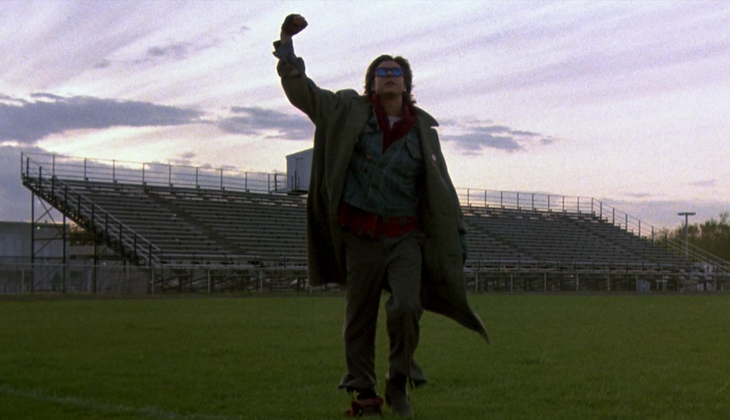
On Sunday night, the glitterati will once again pile up statuettes in their fabulous gift bags when the Academy Awards bestows Hollywood’s best and brightest with film’s greatest honors. That’s how they present it to us, even after a harsh Norbit snub in 2007. But we, as movie fans, decided to hand out our own awards this week by highlighting 10 songs that stand out because of their placement at the end of our favorite films. When the credits roll and the final scene fades to black, you need a real anthem to make that final scene a memorable one. So before we ride off into the sunset (for the weekend that is), here’s our list of 10 essential closing credit songs.

Vera Lynn – “We’ll Meet Again”
in Dr. Strangelove (1964)
The Cold War made for a lot of incredible entertainment between the 1950s and 1980s, and some of the best of it came in satirical form — like this black comedy, surely one of the best films to bear Stanley Kubrick’s directorial title. It’s a horrifically hilarious cautionary tale about the inevitable end result of mutually assured destruction, and when the Doomsday Device is finally activated after things go awry (“You can’t fight in here — this is the war room!”), there’s nothing left but mushroom clouds. As this wonderful world is being treated to rubble, we’re treated to this torch song. It’s a cruel joke in a way; Lynn sings, “We’ll meet again/ don’t know where/ don’t know when,” but the only possibility left is in the afterlife. Technically, the inclusion of this song is cheating (and it’s only the first one!); Dr. Strangelove has no closing credits. But it sure helps the film to go out with a bang (BOOM!). – JT
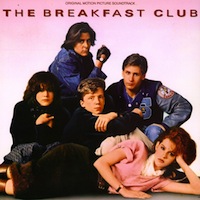
Simple Minds – “Don’t You (Forget About Me)”
in The Breakfast Club (1985)
Scottish rockers Simple Minds only had one hit in the U.S., “Don’t You (Forget About Me).” The track appeared as a single in 1985, but never made it on any of their albums until their best-of compilation in 1992. Despite being snubbed for a position on an LP, the pop song featured prominently at the beginning of John Hughes’ 1985 film The Breakfast Club, as well as over the closing scenes and end credits, which is what fueled the song to its top position on America’s charts. Though some critics panned the track as well as the film, it spoke to a generation of teenagers who saw their social angst portrayed in a film. After a Saturday spent in detention, unlikely relationships have been forged between members of various high school factions—e.g. the athlete, the stoner thug, and the pretty socialite. As the day ends and they each go their separate ways, “Don’t You (Forget About Me)” accompanies their departure, and the content of the track asks the question: come Monday, will we pretend to not know each other, or will we still be friends? – NG
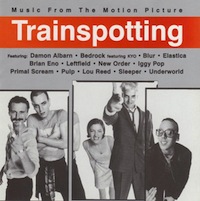
Underworld – “Born Slippy (Nuxx)”
in Trainspotting (1996)
The first line in the 1996 film adaptation of the Irvine Welsh novel Trainspotting is “Choose life,” which initially seems ironic, considering the story centers around a cast of characters that struggle with heroin addiction. But hold on to that thought — despite the many horrific, tragic and absurd scenes that lead up to it (including broken relationships, a surreal dive down the world’s most disgusting toilet and the scariest scene in film involving a baby), it’s ultimately life that Ewan McGregor’s Renton chooses. As he makes a break for it with £16,000 stolen from his friends, Karl Hyde and Darren Emerson’s anthemic techno epic “Born Slippy” booms in the background, its major-key synths mirroring his optimism, while its pulsing beats act as the racing pulse of the film’s climactic four minutes. It’s a hopeful way to ride out a film focused on some grim realities, and though it’s ambiguous whether or not Renton actually stays clean or makes a new life for himself, Underworld’s high-energy musical backing makes you believe — at least for now — he’s got a fighting chance. – JT
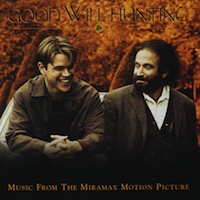
Elliott Smith – “Miss Misery”
in Good Will Hunting (1997)
Gus Van Sant’s 1997 film Good Will Hunting blended heartwarming and soul-crushing elements to tell the story of tormented delinquent/genius prodigy Will Hunting, so it’s no surprise that the filmmakers chose to use five Elliott Smith songs, the bulk of them from either/or, as part of its dramatic score. After all, can you think of a single musician who better fused beauty, delicacy and devastation? The most touching use of Smith’s work within the film came in the form of the final scene and ending credits — in which Matt Damon’s Hunting takes the advice of Robin Williams’ Sean Maguire and abandons others’ expectations in favor of his own hopes and dreams. As Hunting jumps in his newly acquired (and shoddily rebuilt) Chevrolet Nova and drives off into the sunset onto a cross country search for Skylar (Minnie Driver), almost anyone would be forced to shed a tear, regardless of soundtrack choice. But with one of Smith’s most haunting and heartbreaking pieces at play, it becomes a devastatingly emotional affair. It’s hard to imagine things working out picture perfect for Hunting (or else why would director Gus Van Sant have chosen such a emotional-laden soundtrack?) but its hard to beat the insane catharsis that this pairing creates. – ATB
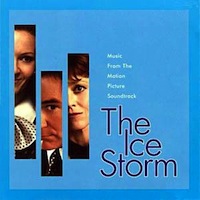
David Bowie – “I Can’t Read”
in The Ice Storm (1997)
This criminally underrated, financial flop of an art-house film found Ang Lee (Oscar-winning director of Brokeback Mountain and Life of Pi) guiding a monstrous cast of today’s A-listers and go-to character actors as damaged Connecticut families fumbling for stability and relevance against the backdrop of an impending frigid Thanksgiving. It’s cloaked in a sadly smoldering musical atmosphere built largely from the swinging early 1970s—Zappa, Nilsson, Jobim, Elton John, Free, Traffic. As the credits roll we hear the film’s final, purposeful fumble: While David Bowie’s minor-key warbling and spare guitar could easily have been lifted from period work like Station to Station, it is in fact a re-recording of a song he wrote with Reeves Gabrels for their art-rock group Tin Machine in 1989. Dealing with the loss or grief following any personal failure, it speaks to the dour power of Bowie’s timelessness, Lee’s vision, and the 1994 Rick Moody novel on which they both rest. – AB
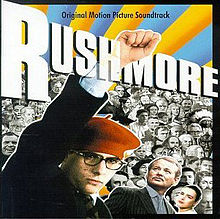
Faces – “Ooh La La”
in Rushmore (1998)
Wes Anderson’s use of music in his films is part of what makes his cinematic style uniquely charming or offensively twee, depending on how you look at it. Me, I’m in the former camp, even recognizing that style definitely won out over substance in The Darjeeling Limited and The Life Aquatic. But everything just works in Rushmore, his second — and best — feature film. Obsessive, dysfunctional Rushmore Academy student Max Fischer and rival Herman Blume’s rivalry comes to a boiling point at the climax, but there’s a happy ending — of sorts — when Fischer wraps up another hit play and reconciles with both Blue and the former object of his affection, Miss Cross. Fischer instructs the DJ to play something with a little more, uh… and the two have one last sweet moment, as Ronnie Wood’s vocals echo the hard lessons that Fischer’s arc has led up to: “I wish that I knew what I know now, when I was younger.” – JT
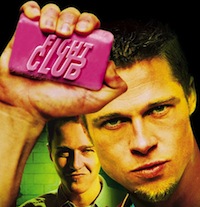
Pixies – “Where Is My Mind”
in Fight Club (1999)
Black Francis’s song “Where Is My Mind” was already familiar to Pixies fans through the band’s 1988 freshman album Surfer Rosa, and while the track is awesome on its own, it reached a wider audience after appearing in Fight Club, a film about a fractured mind. That final moment is surreal as Edward Norton finishes off his alter ego hallucination, Tyler, by shooting himself in the head (worth it). Financial buildings are collapsing outside the office window, the culmination of his insane foray into domestic terrorism, while the darkness shatters with light from the explosions of the initial blasts, which are beautifully in sync with the beginning drum fill of “Where Is My Mind.” The moment is charged further when Norton turns to Marla and says, “You met me at a very strange time in my life.” No film ending is integrated better with its soundtrack than this one, with those violent fireworks happening in the background and Norton holding Marla’s hand as they watch the world crumbling outside. It’s romantic, insane, and a total adrenaline rush. – NG

Rage Against the Machine – “Wake Up”
in The Matrix (1999)
Giving rise to enough on-screen fighting styles and social media memes to satisfy the planet for decades, the first film in the Wachowski siblings’ sci-fi trilogy also features a mad aggro soundtrack of metal and electronics. Propellerheads and Meat Beat Manifesto repped hardest for beats and beeps at pivotal points in the movie, and it was nice to hear Rob Zombie play as Keanu Reeves and Carrie-Anne Moss met for the first time. But for an iconic scene in a movie chock full of them, you could do worse than to single out Reeves as Neo, giving a final warning to the Matrix and its agents about a coming day of reckoning before going full Superman. (Note the phone booth and unaided flight.) Rage Against the Machine’s words about racist surveillance of Americans by its government—an obvious parallel to Matrix-technology-as-overseer—propel that image into the credits and our long-term filmic memory. – AB
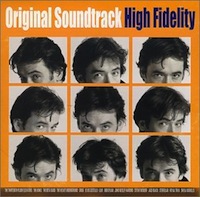
Stevie Wonder “I Believe (When I Fall in Love It Will Be Forever)”
in High Fidelity (2000)
Anyone deeply invested in music undoubtedly identifies with the characters in High Fidelity—it illustrates the compulsion to collect music, to perhaps sabotage perfectly good relationships, to neurotically insist on organizing record collections and storing them in the proper way. We could say it helped catalyze the modern return to vinyl, that it addresses all the things that characterize the music devotee’s addiction to knowing everything there is to know about an album, an artist, or a song. It’s fitting then, that the lovely track that accompanies the credits to High Fidelity comes from an artist referenced somewhere in the middle of the film when a dad pops into the record store looking for “I Just Called To Say I Love You” on vinyl (“Rob, top five musical crimes perpetrated by Stevie Wonder in the 80s and 90s. Go. Sub-question, is it in fact, unfair to criticize a formerly great artist for his latter-day sins? Is it better to burn out than to fade away?”). “I Believe (When I Fall in Love It Will Be Forever)” from 1972’s Talking Book heralded a new direction for Stevie Wonder’s career, breaking him from the Motown template and moving into territory that was uniquely his own. The track can be heard quietly drifting over John Cusack’s closing monologue as he riffs on what it means to finally understand how to make a mixtape for the girlfriend he’s worked so hard to bring back into his life. Rather perfectly, Cusack pops his headphones on to continue crafting the mixtape just as Wonder intones, “I believe when I fall in love with you it will be forever.” – NG
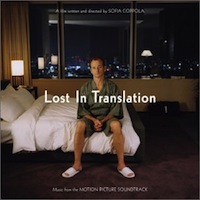
The Jesus and Mary Chain – “Just Like Honey”
in Lost In Translation (2003)
A lot of people have spent a lot of time trying to slow down, enhance and reveal the barely audible message that Bill Murray whispers into Scarlett Johansson’s ear at the end of Lost In Translation. But while I understand the desire to try to decode cinema’s incalculable mysteries, I’d rather take in what amounts to an ambiguously warm, sad and ultimately human moment, scored by a sublime three minutes of shoegaze. The entirety of Lost in Translation is beautiful, surreal, peculiar and relatable — and its soundtrack is impeccable, thanks in large part to contributions from My Bloody Valentine’s Kevin Shields. Here’s where it’s actually heartbreaking, however, as the unlikely friendship of Bob and Charlotte comes to an end after their chance meeting in Tokyo comes to a bittersweet end. They’re two desperately lonely people, saying goodbye because they have to, and it’s hard to imagine a more powerful way to score it than with two distorted chords, Bobby Gillespie’s “Be My Baby” beat, and Jim Reid’s breathy, druggy vocals. Fade to black. – JT
Support our Site—Subscribe to Our Patreon: Become one of our monthly patrons and help support an independent media resource while gaining access to exclusive content, shirts, playlists, mixtapes and more.

